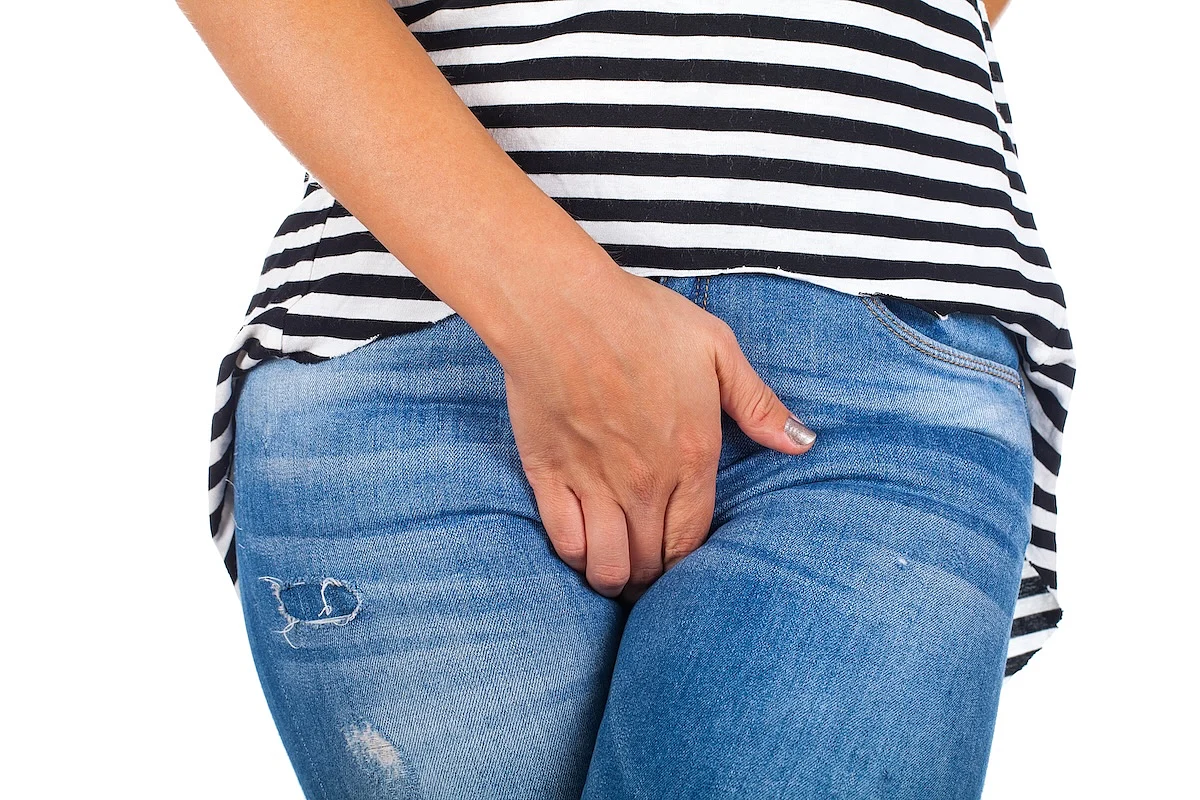Belly Fat Increases Stress Incontinence Risk
THURSDAY, July 17, 2025 — Middle-aged women with more belly fat have a higher risk for stress urinary incontinence, a recent study says.
Fat around the waist and visceral organs increases by 33% a woman’s risk of leaking when she sneezes, coughs or exerts herself, researchers reported in the journal Menopause.
“Abdominal obesity may cause pelvic tissues to encounter chronic strain and stretching that eventually weakens the structures of the pelvic floor,” wrote the research team led by Mari Kuutti, a doctoral researcher at the University of Jyvaskyla in Finland.
Risk of bladder leaks also was associated with overall body mass index (BMI) and waist circumference, researchers found. BMI is an estimate of body fat based on height and weight.
In fact, the team concluded that BMI and waist circumference probably work as well as more precise measurements of body fat in determining a woman’s risk of stress incontinence.
For the study, researchers tracked the health of 376 women living in the Jyvaskyla region of Finland. They were 47 to 55 at the start of the study.
The team used a variety of methods to analyze the women’s body fat mass, including bioelectrical impedance and X-ray scans.
“We studied body adiposity, measured waist circumferences of the participants, and calculated body mass index,” Kuutti said in a news release. “Then we analyzed the associations of these factors with the symptoms of pelvic floor disorders.”
Results showed that higher body fat levels, as well as higher BMI and larger waist circumference, were associated with an increased risk of stress incontinence.
The highest risk was associated with android fat – excess fat stored around the stomach, chest and upper back.
“Both the mechanical and the metabolic stresses of overweight and excess adipose tissue predispose an individual to the development of urinary incontinence,” researchers wrote.
However, researchers noted that women with severe obesity – a BMI greater than 35 – were specifically excluded from the study, indicating that lower amounts of excess weight can contribute to stress incontinence.
Future research is needed to show whether losing weight might lower this risk or serve as a treatment for stress incontinence, researchers said.
Sources
- University of Jyvaskyla, news release, June 19, 2025
- Menopause, June 19, 2025
Disclaimer: Statistical data in medical articles provide general trends and do not pertain to individuals. Individual factors can vary greatly. Always seek personalized medical advice for individual healthcare decisions.
© 2025 HealthDay. All rights reserved.
Read this next
Inactive Parents Tend To Have Couch Potato Kids
WEDNESDAY, Sept. 10, 2025 — Kids are more likely to become couch potatoes — or enthusiastically active — based on what they see their parents doing day-to-day, a...
Salmonella Outbreak Tied To Metabolic Meals Sickens 16, CDC Warns
MONDAY, Sept. 8, 2025 — A salmonella outbreak tied to Metabolic Meals home-delivery products has sickened at least 16 people in 10 states, and another seven have been...
FDA Creates 'Green List' of GLP-1 Drug Ingredients Approved for Entry in the U.S.
FRIDAY, Sept. 5, 2025 -- The U.S. Food and Drug Administration has created a "green list" import alert to stop unapproved and unverified glucagon-like peptide 1 (GLP-1) drug...
More news resources
- FDA Medwatch Drug Alerts
- Daily MedNews
- News for Health Professionals
- New Drug Approvals
- New Drug Applications
- Drug Shortages
- Clinical Trial Results
- Generic Drug Approvals
Subscribe to our newsletter
Whatever your topic of interest, subscribe to our newsletters to get the best of Drugs.com in your inbox.


